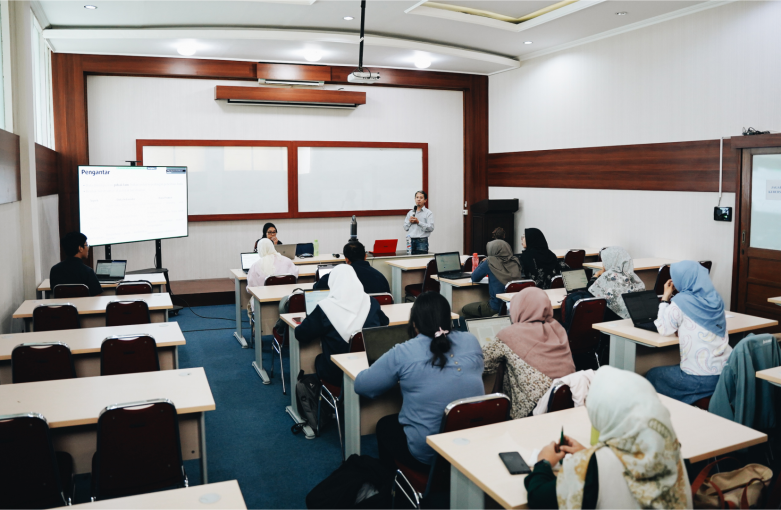
In an effort to strengthen research capacity and data literacy among academics and the general public, the Laboratory of Socio-Economic and Agribusiness Modeling, Department of Agricultural Socio-Economics, Faculty of Agriculture UGM, once again held Sapa Data (Data and Analysis Training Series) in June 2025. This activity consisted of two training sessions, conducted in a hybrid format and open to the public.
The first session, Sapa Data 1, took place on Friday, June 20, 2025, with the theme “Introduction to International Macro-Level Secondary Data.” The session was delivered by Agus Dwi Nugroho, Ph.D., who systematically explained various sources of international macroeconomic secondary data. From general concepts to practical data retrieval techniques, participants were provided with in-depth knowledge to support research at global and regional levels.
The second session, Sapa Data 2, was held on Tuesday, June 24, 2025, with the theme “Introduction to Micro-Level Data (Susenas, Sakernas, Podes).” The session was presented by Arini Wahyu Utami, Ph.D., and Israul Hasanah, S.E., who discussed in detail the characteristics and usage of national micro-level datasets, including the National Socio-Economic Survey (Susenas), the National Labor Force Survey (Sakernas), and the Village Potential Survey (Podes). In addition to theoretical explanations, participants also received a technical demonstration on how to analyze these micro datasets effectively.
This activity represents a tangible contribution of the Department of Agricultural Socio-Economics UGM in fostering a strong research culture based on accurate data and sound analysis. It is expected that Sapa Data can serve as an inclusive and practical learning platform, especially for researchers, lecturers, students, and institutions utilizing secondary data for academic purposes and policy development.
Through this initiative, the Laboratory of Socio-Economic Modeling at UGM also supports the achievement of several Sustainable Development Goals (SDGs), including:
SDG 4: Quality Education, as the activity promotes open and high-quality data-based learning;
SDG 9: Industry, Innovation, and Infrastructure, by enhancing data-driven research capabilities to support socio-economic innovation;
SDG 17: Partnerships for the Goals, through collaboration among academics, students, and the wider community in building shared data literacy.
With the successful implementation of this training series, the Laboratory reaffirms its commitment to addressing the growing need for enhanced research capacity in the digital transformation era and amidst global challenges.
Author:
Adhika Hafizh Prasada, S.P.
Website Administrator, Department of Agricultural Socio-Economics
Faculty of Agriculture, Universitas Gadjah Mada
